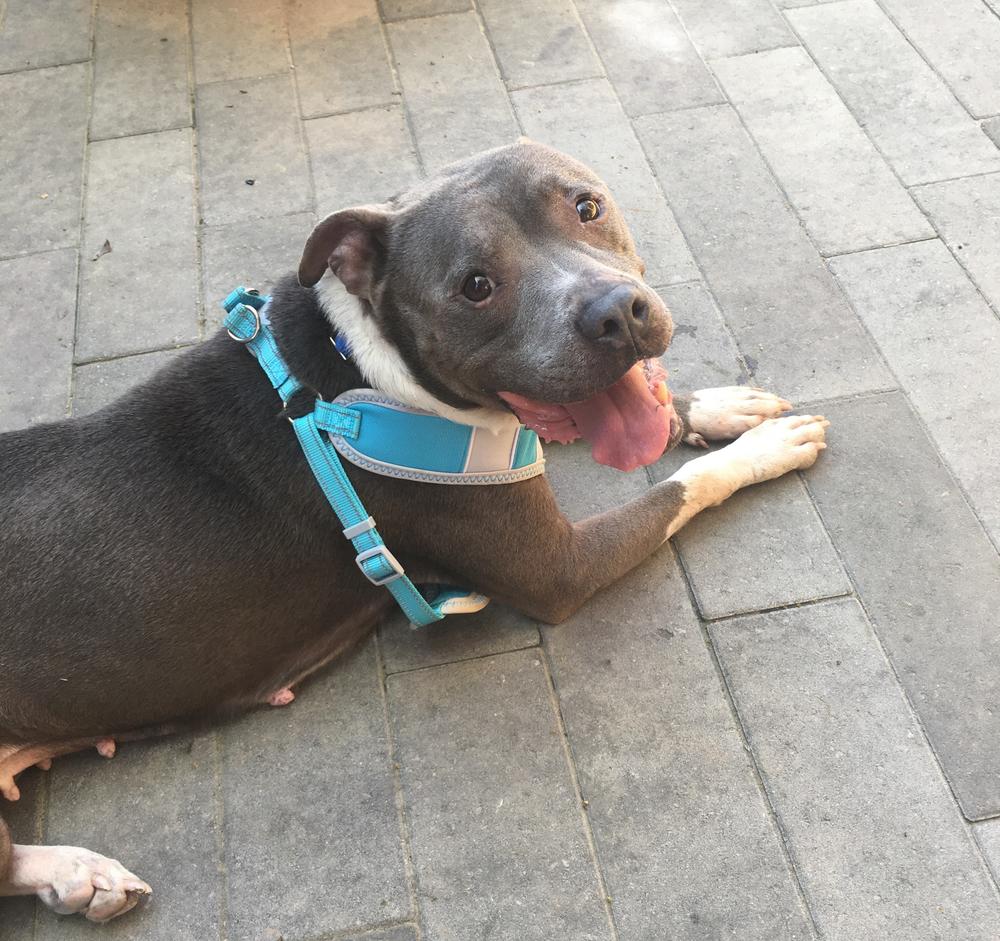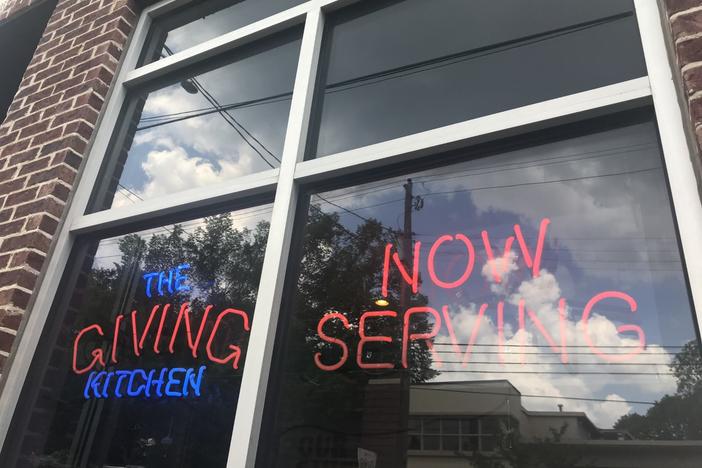Section Branding
Header Content
Georgians Adopt Pets To Ease Coronavirus Stress
Primary Content
Staying home and distant from others because of the pandemic can be lonely and stressful. People are finding lots of ways to cope, including bringing home a new furry friend. Animal fostering and adoption is helping both humans and pets through the crisis.Fostering or adopting a pet is helping some Georgians to cope with staying home because of the pandemic.
Georgie Harris is spending a lot of time in her Atlanta house these days, and in the yard out back. Luckily, she’s got some company: Eliza Jane, a big gray and white pitbull who loves to play with a ball.
“She needed a home,” Harris said. “And it was like, all right. We took her home for a little trial. And I was pretty — we were pretty sold by the end of the night.”
Harris’s previous dog died last summer. She wasn’t sure she was ready for a new one. Then the distancing measures to stop the spread of COVID-19 started.
“I was like, really anxious at home,” she said. “It was just it was just quiet and weird and all day and no noise.”
Adopting Eliza Jane has helped.
“It's almost like accountability to know that you exist. I know that's very, almost, that's an extreme way to put that,” Harris said. “But there's definitely a sanity that having more spirits and personality and energy around, kind of like validates — it helps you, like, contain your own boundaries a little bit.”
The mental health benefits of having a pet are real, and well-documented. Pet owners report decreased symptoms of depression, for instance.
“It's speculated that, you know, having an animal increases variety and interest through the day,” said Dr. Dale Peeples, who teaches psychiatry at the Medical College of Georgia. “Especially a time like this, you're stuck at home. You know, it's one more thing to do, one more thing to engage in.”
Peeples said having a pet can also help with another struggle a lot of people are facing right now: loneliness.
“If you've got your cat or dog there, but you don't have roommates, you don't have family living with you, you're much less likely to feel socially isolated than the individual who's really just there by themselves.”
Lots of people are turning to animals to get through the coronavirus crisis. Shelters across Georgia and the country are seeing high numbers of fosters and adoptions. The Humane Society for Greater Savannah has sent 94 pets to foster homes during the pandemic.
Operations Manager Courtney Foor said this helps them limit staff to keep from spreading the virus. And it’s good for the pets.
“It's gonna be so much, well it has been so much nicer for them being able to be in a home in a comfortable setting, de-stressing from the stress that is built up at the shelter,” she said. “And some of these fosters are actually wanting to adopt, they're talking about adoption already.”
Of course, this crisis won’t last forever, and whether they’re newly-adopted or well-established, some pets will have a hard time when humans go back to their normal lives. Foor said it’s a good idea to spend some time apart from your pets, even while you’re staying home more.
“The main thing that people should be thinking about and even already should be thinking about is that transition and doing it in a way where it isn't abrupt,” she said.
Georgie Harris said she’s also worried about what her new rescue dog is learning, joining a new family at this unusual time.
“I, when I see another human, I have a little...a little bit of a danger trigger comes up just because, you know, because we're extreme social distance right now,” she said. “So I know that she really picks up on that, too.”
But Harris is optimistic she can handle the transition well. For now, like so many pets with worried, cooped-up humans, her dog is helping her cope.
Secondary Content
Bottom Content





